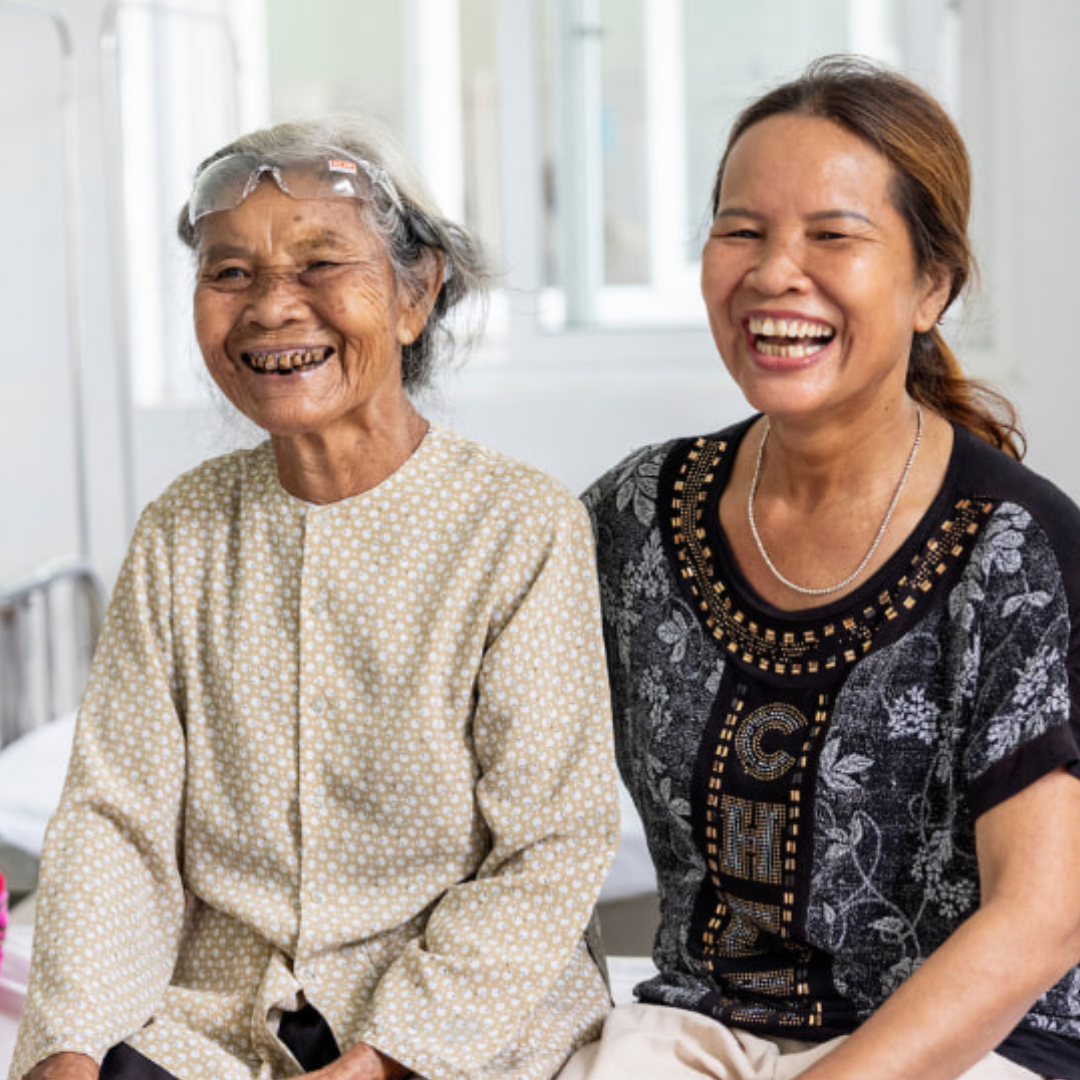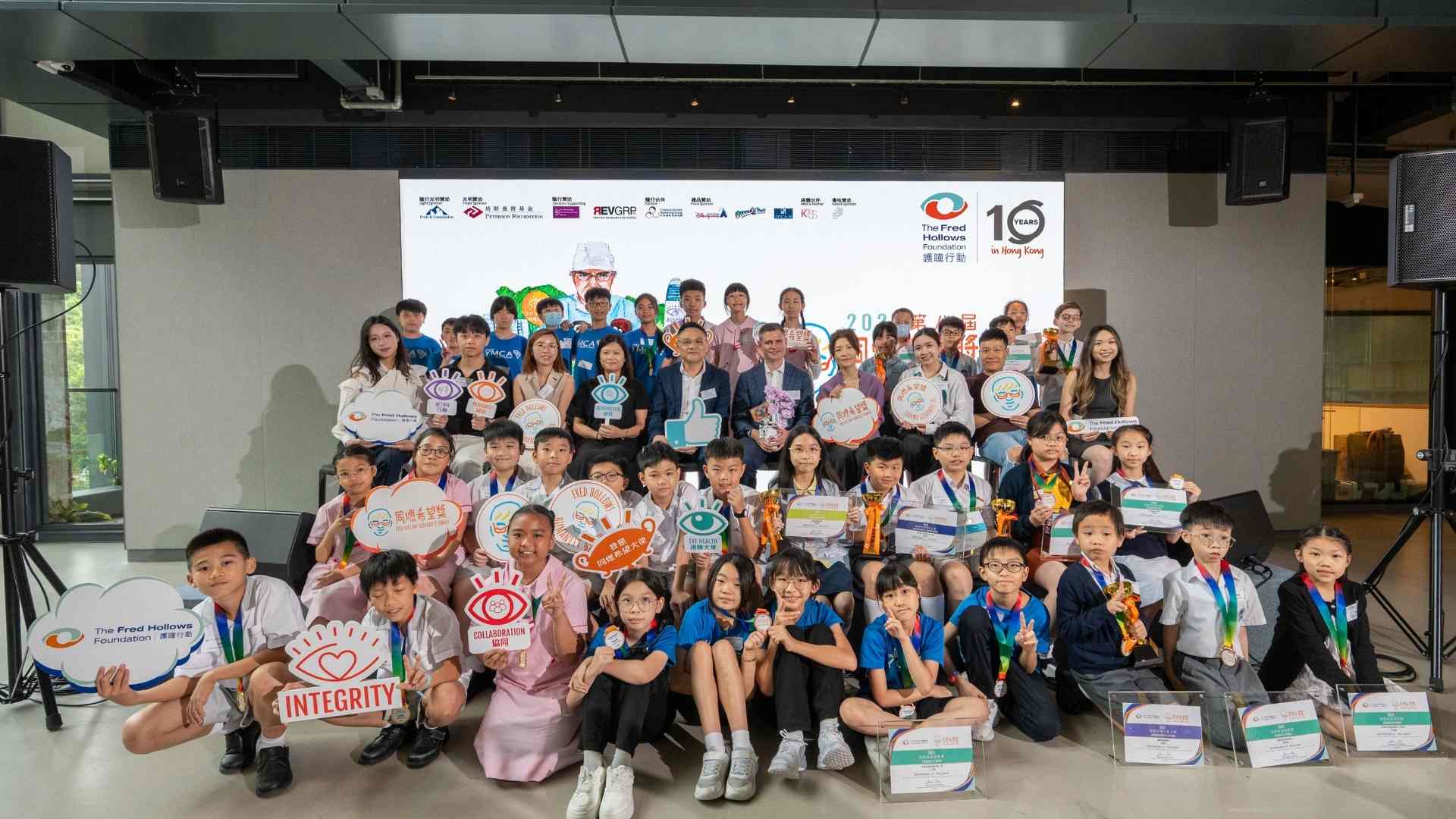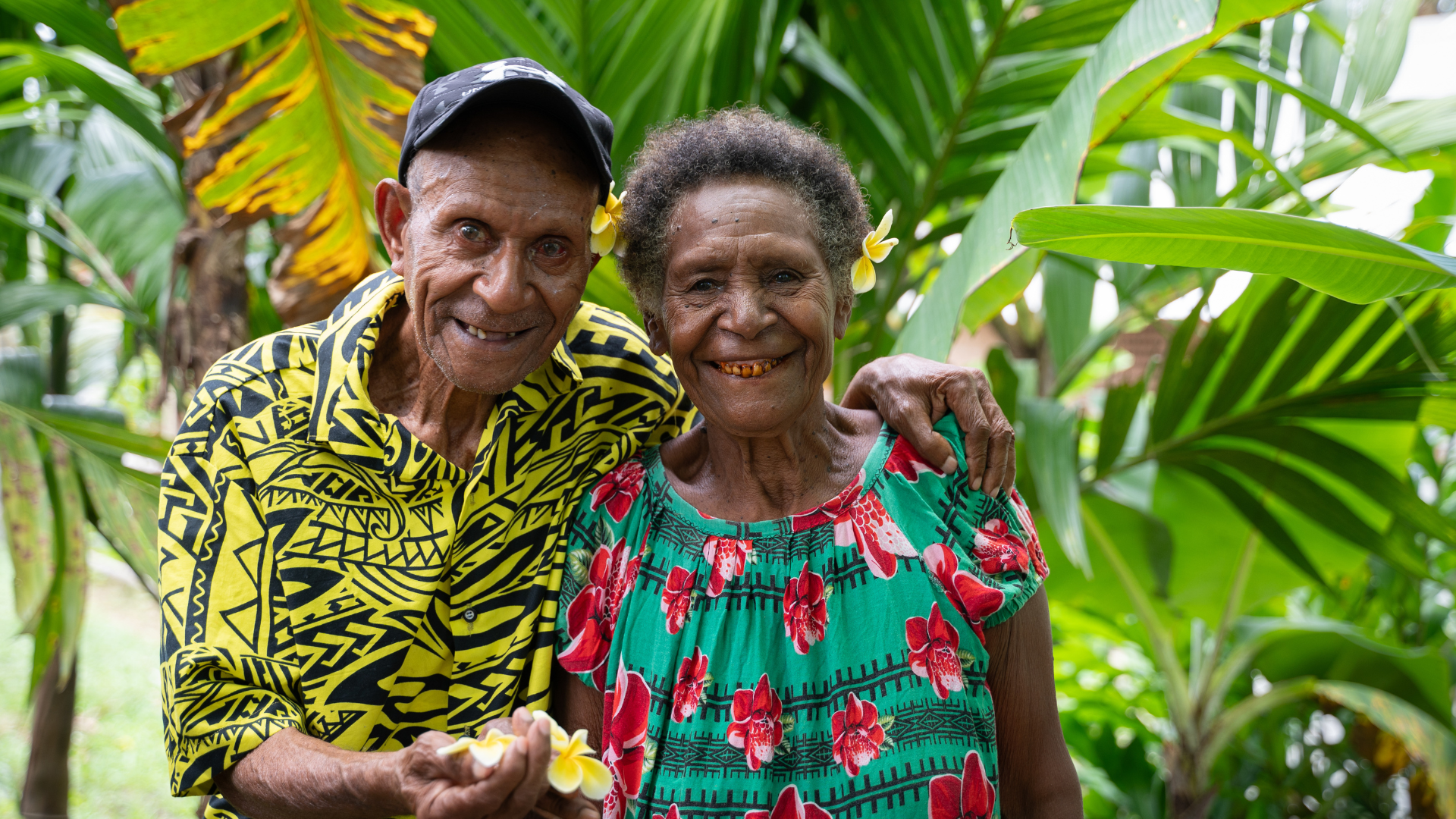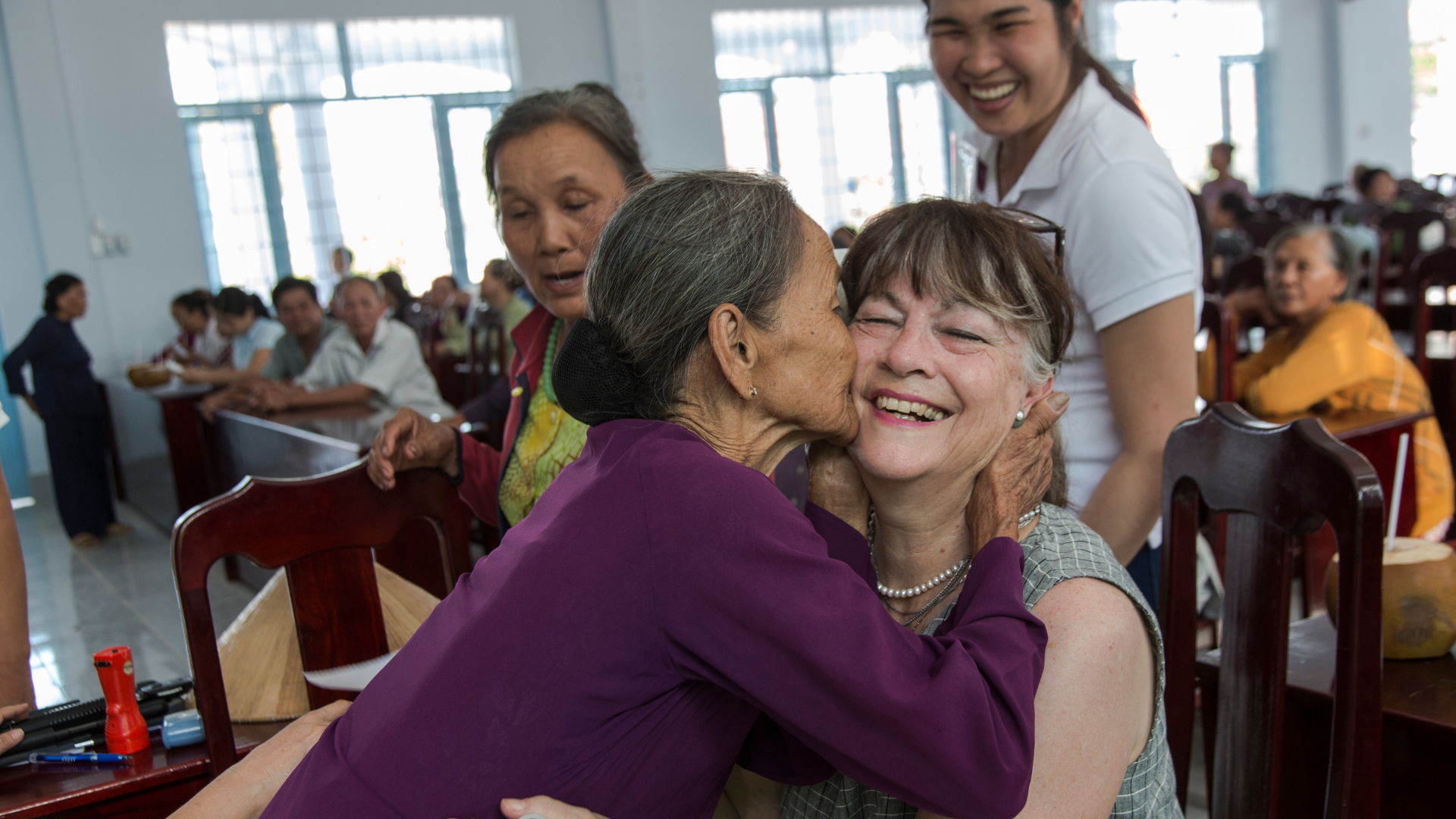Caring for your ageing parents' eyes

As people get older, the strength or acuity of their senses, such as sight, hearing, smell and taste, tends to diminish with time. They may become more susceptible to diseases, including those affecting the eye. If you are concerned about your parents' (and even your own) eyes, here are a few things to consider in relation to their vision.
DID YOU KNOW?
- 78% of people who are blind are aged 50 or older (33.6 million)
- 70% of people with moderate or severe vision impairment are aged 50 or older (206 million)
- The prevalence of blindness in those aged 90–94 years is more than 11 times greater than in those aged 50–54 years.
- Between the years 1990 and 2020, the age-adjusted prevalence of blindness in adults aged 50 years and over decreased by 28.5%
- While the prevalence of blindness is falling for everyone, over the past 30 years, it’s dropped by 33% for men compared to just 25% for women
- Women account for 55% of the world’s blind (23.9 million) and vision impaired (163 million).
1. AT WHAT AGE DO YOUR EYES AND VISION START CHANGING?
Middle-aged adults over 40 will most likely see a change in their vision, with 20/20 vision becoming evasive. Between the ages of 41 to 60, it is normal for changes to occur in the eyes’ ability to read and see near-objects. This is known as presbyopia, and it usually progresses with age. It can be corrected with prescription eyeglasses.
A decrease in ability to clearly see things at a distance is also common, which is most often because of cataract. It is also important to have a regular eye examination if someone has diabetes or hypertension as these conditions can affect the eye and lead to blindness if not diagnosed and treated early.
It is very important to start getting regular comprehensive eye check-ups from your optometrist or ophthalmologist, and follow their advice.
Related:
What can I expect at an eye test?
What questions should I ask my eye doctor?
Anyone over the age of 40 who has one of the following pre-existing conditions may be at risk of developing eye and vision problems:
- Chronic conditions, including high blood pressure (hypertensive retinopathy) or diabetes (diabetic retinopathy)
- Health conditions including high cholesterol, thyroid disorder, tuberculosis, cancer or arthritis
- A family history of glaucoma or macular degeneration
- On medication like steroid, chemotherapy, radiotherapy, etc
2. WHAT ARE SOME COMMON EYE PROBLEMS AFFECTING OLDER PEOPLE?
All bodies change with age, this includes body parts like the eye, and in turn, vision. Not everybody will experience changes at a similar rate, and while some people may not notice the following age-related visual acuity changes, they are the most common ones:
- Needing more light. Brighter lights at your workstation, computer desk or even near your reading nook will help you see better, making it easier to read, write and perform other up-close tasks.
- Needing bigger fonts to read clearly. Printed text can become difficult to focus on and read.
- Experiencing dry and irritable eyes. As you age the tear glands in your eyes produce fewer tears. Eye drops can help relieve discomfort.
- Being affected by glare easily as changes in your eye’s lens can cause light entering it to scatter instead of focusing on the retina. This is especially problematic when driving, when glare from the sun during the day and headlights during the night can reflect off the road or your car’s windshields.
You should always visit your eye health specialist if you notice any changes in your vision.
Eyeglasses, contact lenses, surgical procedures (especially for cataract), and laser treatment, can help alleviate some of these eye related issues – and your eye doctor will be able to help you determine which option is best suited to you.
3. WHAT ARE THE SIGNS AND SYMPTOMS FOR DIMINISHING EYESIGHT?
Here are some common signs you may notice in your parent or grandparent that can be an indicator of diminishing vision:
- Squinting to read
- Squinting or closing their eyes in light that everyone else is comfortable with
- Complaining that there isn’t enough light when it isn’t affecting others
- Holding an object close to the face to see it better
- Not being able to recognise faces unless up close
- Turning the head to look out of one side of the eye
Here are some questions you should ask your loved ones to determine whether they may be experiencing changes in their vision:
- Does your eye hurt?
- Does your eye hurt in the sun or at night when the light is on?
- Is the light enough for you to see at night or do you need stronger light?
- Can you see from both eyes?
- Is your vision blurred?
- Can you read things clearly or do you have to hold it up to your face or further away?
- Are you experiencing eye strain, including dry or tired eyes?
- Do you see flashes of light in front of your vision, like sparkles or fireworks?
- Do you see anything floating in front of your vision?
- Do you see halos or rainbows around light?
- Are you getting headaches?
- Are you getting any discharge from your eye?
If you notice any of these signs and symptoms, please make an appointment to see your eye health provider as soon as possible. Early intervention can help treat and manage eye conditions, allowing a person to reduce the impact of vision loss and retain their independence.
4. HOW CAN I LOOK AFTER MY PARENTS’ EYES?
Here are a few things you can do to help your parents look after their eye health in their old age:
MAKE SURE THEY GET THEIR EYES TESTED REGULARLY
The most important thing you can do for your parents’ eye health and vision in their older years is to ensure that they go and regularly get their eyes tested by a qualified eye health professional. Because the sooner an eye condition is diagnosed, the sooner it can be treated or managed.
MAKE SURE THEY EAT A BALANCED DIET
A balanced diet is essential for general health and well being. The same applies to eye health. You don’t usually need a special diet to maintain good eye health and vision, unless you have a vitamin deficiency. The following vitamins and minerals are important for good eye health:
- Vitamin A
- Beta carotene
- Zinc
- Vitamin C
- Vitamin E
- Omega-3
- Lutein
- Zeaxanthin
Related:
10 foods that are good for your eyes
5 native Australian foods that are good for your eyes
MAKE SURE THEY AREN’T CONFINED INSIDE
Try to encourage your parents and grandparents to go out and enjoy the fresh air. The outdoors are good for our overall health and well being, including mental health. It is also good for our eyesight, as it helps our focus on long distance objects.
It is advisable to spend 90 minutes outdoors each day. But it doesn’t have to be a full hour and a half in one stretch, it can be divided up throughout the day.
However, do try to discourage your loved ones from going out in the glare of the midday sun. A sunhat and sunglasses can also combat the harsh effects of the sun, encourage them to wear these even during the morning and evening on sunny as well as overcast days.
TREAT THEM WITH DIGNITY
We all value our independence and self determination. And while old age can make us more dependent on our loved ones for support, we still want to be treated with respect and dignity.
We should always be mindful of our parents' wishes. Be gentle in your approach, and word things so they come out as requests rather than orders or instructions. Be normal and natural in how you communicate but slow down where needed, and practice patience.
DISCLAIMER:
The content on this page is not intended to be medical advice. For specific medical advice, please contact your health professional.
Meet the authors
Related articles

「2025同燃希望獎」圓滿結束!

Eye disease trachoma eliminated in Papua New Guinea


